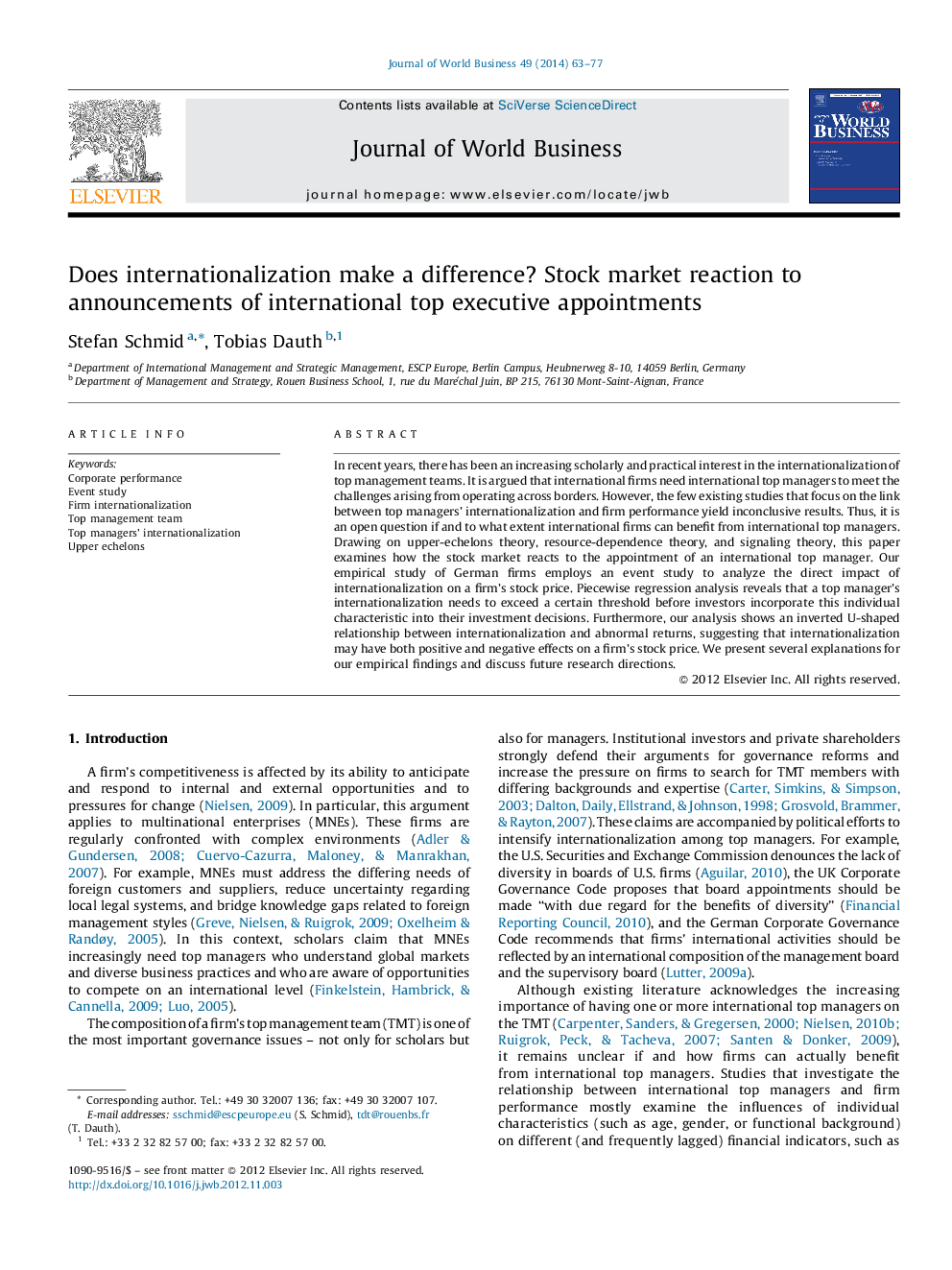| Article ID | Journal | Published Year | Pages | File Type |
|---|---|---|---|---|
| 1003341 | Journal of World Business | 2014 | 15 Pages |
In recent years, there has been an increasing scholarly and practical interest in the internationalization of top management teams. It is argued that international firms need international top managers to meet the challenges arising from operating across borders. However, the few existing studies that focus on the link between top managers’ internationalization and firm performance yield inconclusive results. Thus, it is an open question if and to what extent international firms can benefit from international top managers. Drawing on upper-echelons theory, resource-dependence theory, and signaling theory, this paper examines how the stock market reacts to the appointment of an international top manager. Our empirical study of German firms employs an event study to analyze the direct impact of internationalization on a firm's stock price. Piecewise regression analysis reveals that a top manager's internationalization needs to exceed a certain threshold before investors incorporate this individual characteristic into their investment decisions. Furthermore, our analysis shows an inverted U-shaped relationship between internationalization and abnormal returns, suggesting that internationalization may have both positive and negative effects on a firm's stock price. We present several explanations for our empirical findings and discuss future research directions.
